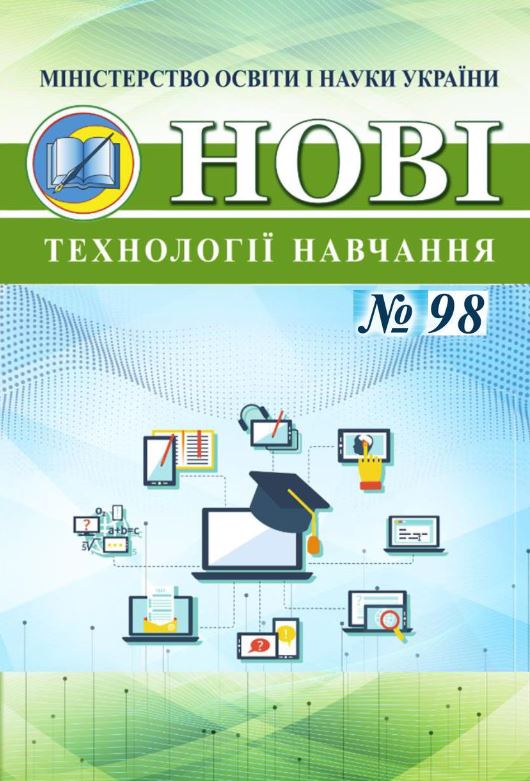Tools for effective student and teacher communication in a digital educational environment: results of online research
DOI:
https://doi.org/10.52256/2710-3560.98.2024.98.18Keywords:
communication tools, online communication, digital environment, general secondary education, digital teacher competence, online researchAbstract
The article examines the importance of effective communication between teachers and students in the digital educational environment due to the intensive digitalisation of the educational process, caused by Ukraine's loss of educational infrastructure due to the war and the COVID-19 pandemic. The author analyses the latest research by domestic and foreign scientists on the use of digital tools for communication in education, highlighting their advantages (improved understanding of the online environment, universality, accessibility, diversity of forms, equal access) and highlighting the positive and negative impacts of digital technologies on the development of children's social skills. The necessity of developing teachers' digital competence in the field of communication following the professional standard is emphasized.
The results of an online survey of teachers from different regions of Ukraine regarding their attitudes and experience in using various digital communication tools in the educational process are presented. It was found that the most popular were messengers (84% of respondents), email (68%), and video conferencing (56%). The main advantages of using digital communication tools according to teachers are identified, including: efficiency, time savings, convenience, and multimedia capabilities. At the same time, respondents noted certain disadvantages: technical problems, lack of live communication, risks to confidentiality and cybersecurity. The conclusion is made about the need to take into account the obtained results of the online research during the professional development of teachers for effective organization of communication in the digital educational environment.
Additionally, the study highlights the importance of striking a balance between the use of digital and traditional forms of communication to develop in students both technological and social communication skills. Further research could be directed towards studying the effectiveness of digital communication strategies between teachers and students depending on age, type of learning activity, characteristics of the educational institution, and other factors. Ultimately, leveraging digital communication tools in education has the potential to create a flexible, interactive, and personalised learning environment for students.
Downloads
Published
How to Cite
Issue
Section
License
Copyright (c) 2024 Оксана Овчарук

This work is licensed under a Creative Commons Attribution-NonCommercial-ShareAlike 4.0 International License.
Із зазначенням авторства - Некомерційна - Розповсюдження на тих самих умовах 4.0 (CC Attribution-NonCommercial-ShareAlike 4.0)









